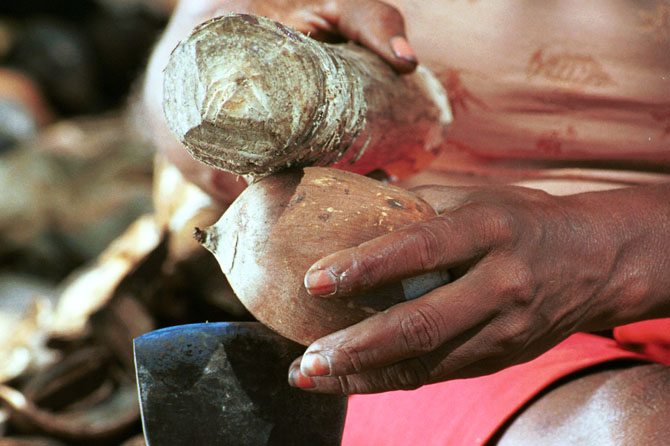1. Quilombo community in Brazil celebrates historic land rights victory
The 500 residents of Brazil’s Cachoeira Porteira quilombo community are celebrating a legal victory that took more than 20 years in the making: they’ve just won titles to their own land. That’s 220,000 hectares of Amazonian rainforest.
In light of Brazil’s history of colonialism and its growing acquiescence to big agribusinesses, Cachoeira Porteira’s victory holds deep significance. They are one of about 3,000 quilombos in Brazil – rural communities founded by African slaves who escaped bondage. Though these communities have been in Brazil for centuries, only about five percent of their territories have been titled. With their new land titles, the people of Cachoeira Porteira are claiming their land rights and will now be able to access social services.
Their victory also pushes back on the current Brazilian administration’s ties to agribusinesses that are wanting to clear Amazon forest reserves for their own use – at the expense of quilombo and indigenous communities.
2. Indonesian palm oil plantation sends “SOS” to highlight environmental impacts
On the ground it looks like any other oil palm plantation. But from above, one can see the letters “SOS” carved out from thousands of oil palms. The giant distress signal is part of a global campaign to raise awareness about the harmful impacts of conflict palm oil in Indonesia.
Rising global demand for palm oil has led to massive deforestation in Indonesia, the world’s top palm oil producer. Palm plantations are clearing huge swaths of rainforests and land to produce oil, pulp and biofuels. Indigenous peoples and wildlife, notably orangutans, are taking the brunt of this destruction.
Artist Ernest Zacharevic was recruited to help broadcast the campaign’s message. According to the campaign director, palms that were cut down will be turned into compost to restore the land.
3. Rwanda leads the world in female political representation
When it comes to female representation in parliament, Rwanda ranks number one in the world. With women making up 64 percent of its parliament, the East African country is considered one of the best places to work as a female politician, educator or professional. Even as many feminists across Africa and the world see Rwanda as a model for gender inclusivity, some are emphasizing that it’s not just about the number of female members in parliament. They’re saying that they are continuing to advocate for greater commitment to women’s rights and gender equality in all spheres.

